The village of Jibrinti in Borno State, northeastern Nigeria, is in mourning after the tragic deaths of two siblings, Amma-Zarah and Muhammad Ibrahim, both under 15. The children drowned in a man-made pool on the village outskirts, a product of illegal soil excavation, which had filled with water due to heavy seasonal rains.
It was a scene of joy turned to horror. On Tuesday, Aug. 26, Amma-Zarah, 14, and Muhammad, 12, finished their chores and went to play by the pool near a groundnut farm. Their playful laughter was cut short when Muhammad lost his footing on the unstable, rain-soaked soil at the pool’s edge. As he struggled, his sister rushed to help, unaware that neither of them would make it out alive since they could not swim.
Despite the cries for help from other children, there were no adults nearby, and both siblings drowned. By the time news reached their parents and neighbours, Amma-Zarah and Muhammad’s bodies were floating in the water.
“The water was too deep and tricky. It took several attempts for adults to retrieve their bodies,” said Goni Muktar, a resident.
The children are remembered by their parents as obedient and courteous.
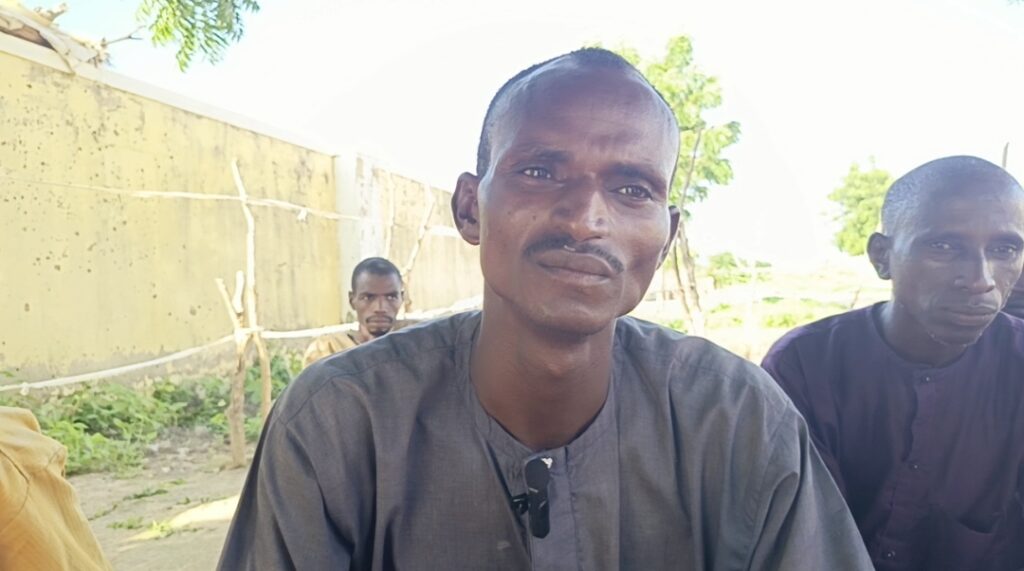
A Preventable Tragedy
The Jibrinti community returned to their homes a year ago after being displaced by the Boko Haram insurgency for nearly a decade. There were no significant bodies of water near the village until last year when a section of farmland was sold for soil excavation for construction purposes.
“A man from Maiduguri wanted to buy farmland for soil excavation. We opposed him, but someone sold their land to him behind our backs,” Jiddah Abba Shek, Jibrinti’s deputy village head, explained. “Excavators came daily, leaving a deep hole filled with water during the rains.”
Ali Mamman, a community elder, stated that it’s common for people to sell or rent portions of their family farmland for crop production. “However, we oppose any excavation activities due to their hazardous consequences.”
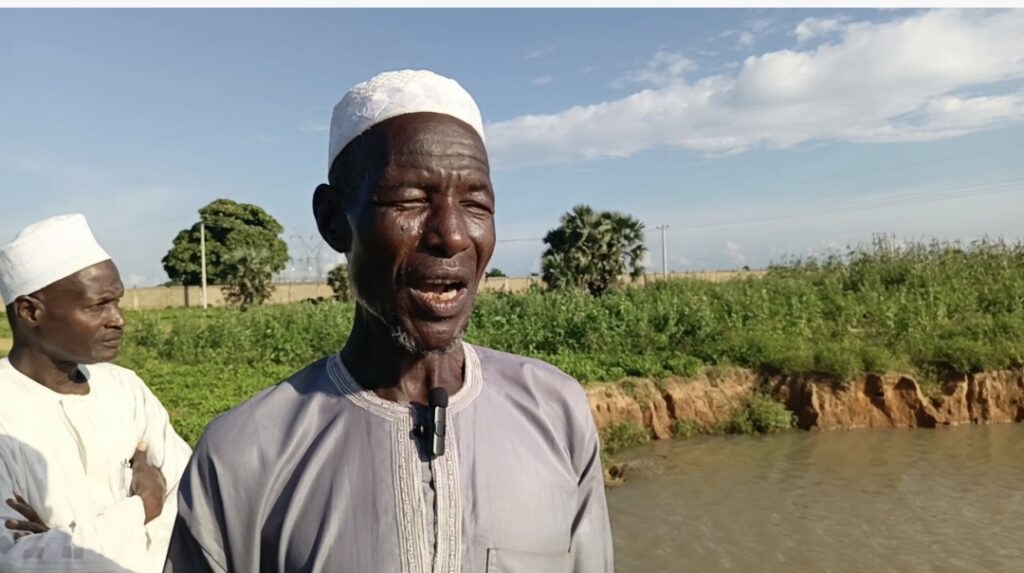
“When we learned that the owner of the land being excavated had sold it, our village head, who is my younger brother, advised him to refund the money. He even offered to help cover part of the expenses to halt the excavation, but the man refused,” Mamman explained.
“We don’t know who purchased the land for excavation, but we’ve observed an excavator on-site and dozens of tipper trucks arriving daily to remove sand,” he added.
This tragic incident is part of the broader ecological challenges facing the region. The construction of dams on river channels is a major cause of flooding, disrupting natural water flow and impacting communities. Additionally, soil excavation for civil engineering projects often proceeds without proper environmental impact assessments, leading to unintended consequences like creating dangerous pools.
Grieving in silence
When HumAngle visited the bereaved family, Abba Ibrahim, the father of the deceased children, said the death of his kids was painful, but he had left everything in the hands of God.
“I must accept this as God’s will. My children drowned playing by the pool. This wouldn’t have happened if the pit hadn’t been dug,” he said, tugging at his wooden rosary and offering muted prayers.
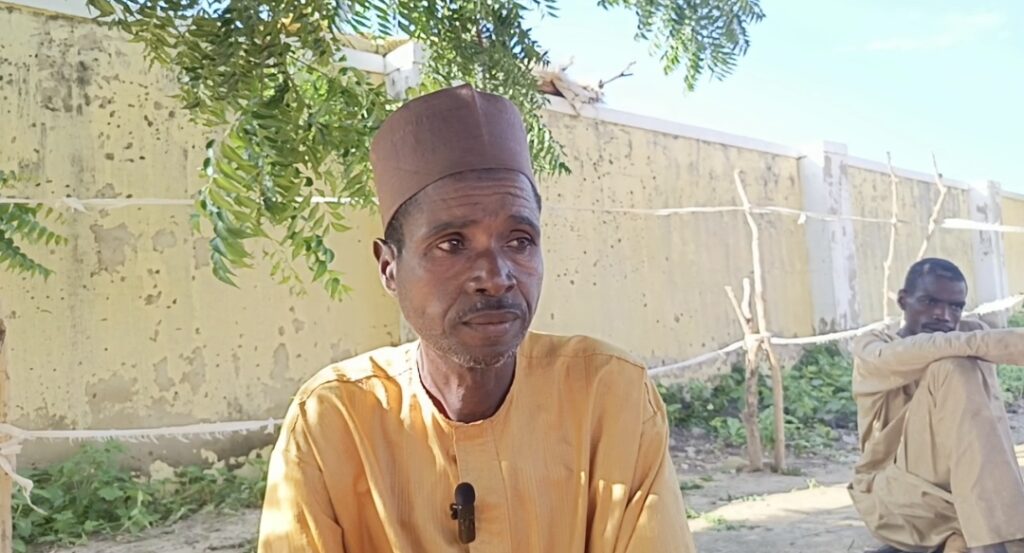
“I’ve lived here all my life, and we have never seen such a tragedy affect a family in Jibrinti,” he said. “We went to the farm and returned together, passing by that dangerous pool of water where children were playing. I never thought they would go back there after we got home.”
His wife, still consumed by grief, struggled to put her pain into words. “She [referring to Amma-Zarah] never knew the water was too deep because the rains had filled it up, so she too went down with him,” she said in tears.
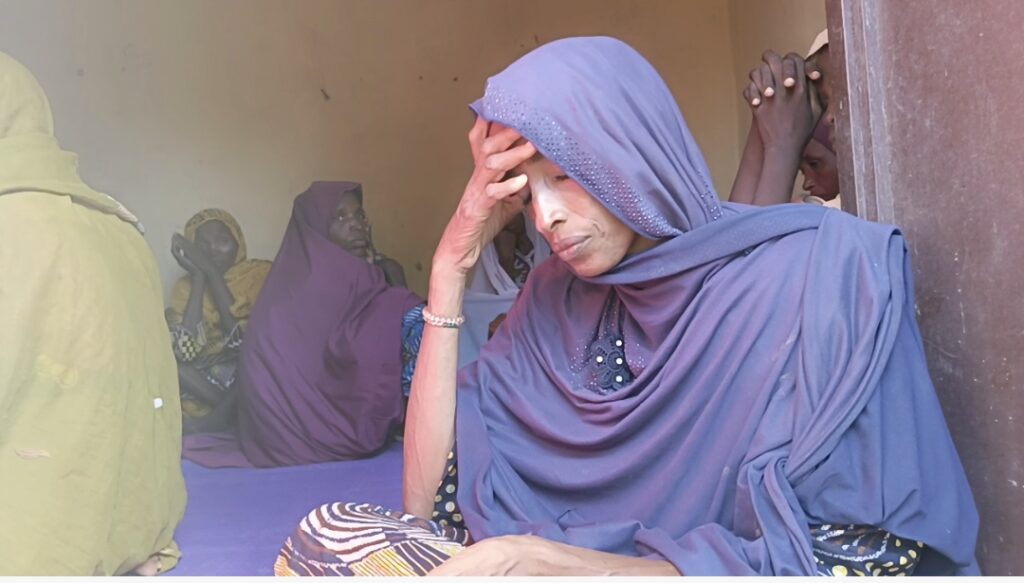
Calls for accountability
While accepting the tragedy as fate, the community urges the state government to enforce environmental laws to protect vulnerable areas like Jibrinti from further harmful excavation activities.
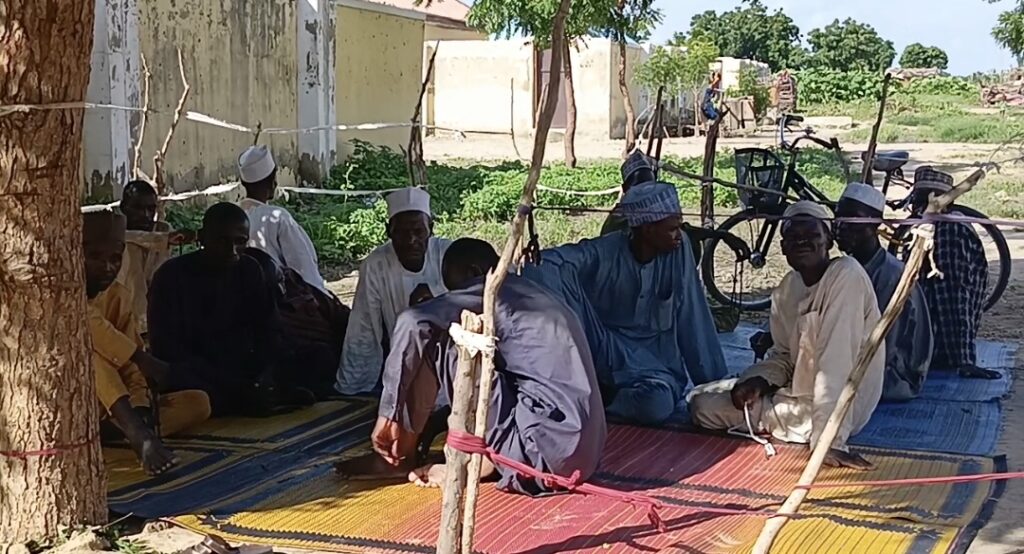
Located near a high-tension electricity substation along Damboa Road, the community is concerned that the soil excavation work has come within 100 meters of one of the towers. Residents fear the soil could cave in, potentially leading to a collapse.
“As you can see, that transmission tower is threatened by the excavation work,” Elder Mamma stated. “If action is not taken, it could fall, resulting in another major disaster for us and the state government. So we want the government to intervene quickly and halt all excavation activities around our community going forward.”
No government officials have visited the family or community since the incident.
Government promises action
When HumAngle informed Julianna Bitrus, the Permanent Secretary of the Borno State Ministry of Environment, she expressed shock. “We will visit the community to assess the situation and investigate thoroughly,” Bitrus stated. “Those responsible will be held accountable. However, we encourage the community to submit an official complaint letter to provide us with a basis for action. We empathise with their plight.”
Bitrus confirmed that her office has received several complaints about unsafe excavations, some of which have already led to fatalities.
“We currently have a petition from residents of the Ajilari-Cross neighbourhood in Maiduguri, detailing deaths caused by hazardous excavations that have created dangerous water-filled gullies. The community is requesting that we halt the excavation and secure the area to prevent accidental drownings,” she explained.
“We have encountered similar issues in Wulari and other areas of Maiduguri. This recent incident adds to our growing concerns, and we are committed to addressing it promptly.”
Support Our Journalism
There are millions of ordinary people affected by conflict in Africa whose stories are missing in the mainstream media. HumAngle is determined to tell those challenging and under-reported stories, hoping that the people impacted by these conflicts will find the safety and security they deserve.
To ensure that we continue to provide public service coverage, we have a small favour to ask you. We want you to be part of our journalistic endeavour by contributing a token to us.
Your donation will further promote a robust, free, and independent media.

